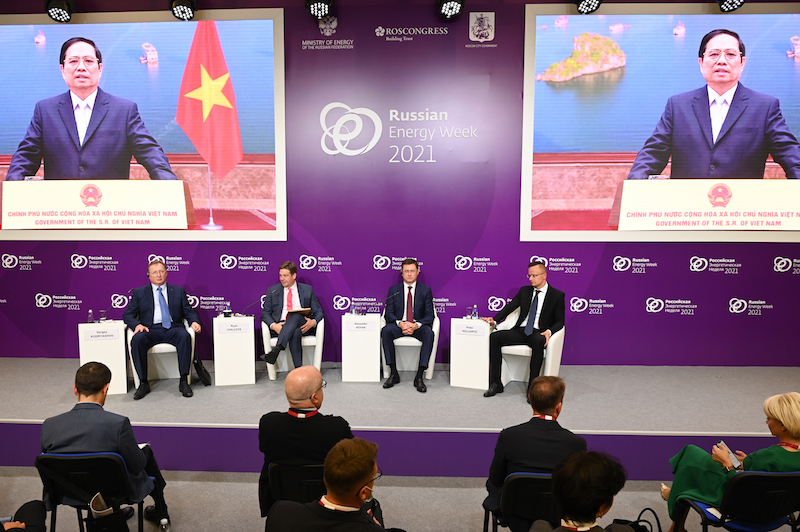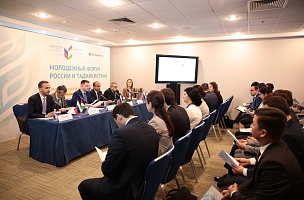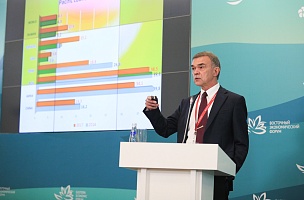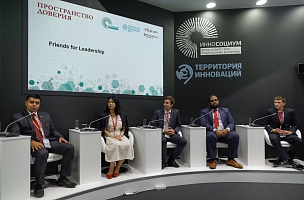KEY CONCLUSIONS
World leaders must avoid politicizing energy
«A more rational and reasonable approach to energy security is needed. Nobody has cancelled the sustainable development goals. People are not only expecting improvements in terms of the climate and environment, they also expect their homes to be heated, and to have light. In order to achieve this, politicians need to work with professionals. The goals should not be empty hype, but calculated and balanced. We are following just such a balanced approach to policy in the Russian Federation,» Alexander Novak, Deputy Prime Minister of the Russian Federation.
«We never liked this confusion, this mixing of politics and energy, which paves the way to the kind of crisis we are seeing today with gas. We must appreciate that politics and energy should be kept separate. For example, closing nuclear power plants and claiming that nuclear power is not sustainable and should not be allowed to develop is the incorrect approach. I think we have drawn the key lessons from history. There needs to be equitable treatment between East and West, otherwise we stand to lose. We must consider nuclear power to be a sustainable form of energy,» Peter Szijjarto, Minister of Foreign Affairs and Trade of Hungary.
Renewable energy should be developed in a natural way, and not forcibly imposed
«Nobody is against the idea of introducing renewable energy sources, such as solar power, tidal power, and hydroelectric power. Nobody is against the idea of new components, such as hydrogen power, which will play a role in the future. The question is about the rate of development, and the means and methods employed in this process. Either it will develop in a calm and natural way, or it will be forcibly imposed — which is what is happening today — without consideration given to the consequences, as we can see today from the gas crisis,» Alexander Novak, Deputy Prime Minister of the Russian Federation.
«We are aiming to cut emissions by 95–100% by 2050. Competition of this kind should be healthy by nature. Yet we can see the popularity of green ideology in Europe. Green parties are using these ideas to identify themselves on the political landscape — to find themselves and their place. If this agenda is used to accomplish political goals, it may threaten the success of the green strategy,» Peter Szijjarto, Minister of Foreign Affairs and Trade of Hungary.
PROBLEMS
A lack of proper planning and forecasting within various markets
«We are always telling people that it is important to look a little beyond the tip of one’s nose. In late 2020, there was a large surplus of oil. An agreement is in place — we abided by it in order to establish an equilibrium, and we will achieve the aims set out in it. We consider it to be important to reduce the surpluses which were caused by the pandemic. But look what’s happening on the gas market, on the coal market. If these markets had been given due attention, as the oil market was, we would not today be discussing this rather serious energy crisis which is proving to be a threat this winter. There is a lack of coordinated action involving participants, sellers, and buyers. There is a kind of blind faith in price markets, but we need to give very precise and clear signals as to where the demand will lie in the future, and what the relevant industry can do to meet that demand,» H.R.H. Prince Abdulaziz bin Salman Al Saud, Minister of Energy of the Kingdom of Saudi Arabia.
«Mistakes were made at the level of governance, and these have led to the current gas crisis in Europe. Nobody there has planned supply and demand for gas. It is instead hoped that the invisible hand of the market will guarantee supplies. This is the result of a rejection of long-term supply contracts in favour of the spot market. Gas is going to where the prices are higher. And those who made the corresponding decisions are now reaping the fruits of an unbalanced policy. It’s essential to plan things more meticulously, including in terms of balancing supply and demand,» Alexander Novak, Deputy Prime Minister of the Russian Federation.
SOLUTIONS
The energy sector needs to become cleaner in a way that does not adversely affect global energy security
«Many countries have set themselves specific emission reduction targets and have drafted road maps. There is undoubtedly much hype and many conversations surrounding these, which are being heavily publicized in the media. What the world wants and what the world expects from the UN Climate Change Conference in Glasgow is a specific agreement which will enable developed and developing nations to reach a consensus allowing all of us to achieve the goals of the Paris Agreement — to keep the rise in the average global temperature to below 2 degrees Celsius. To reiterate, we — OPEC — fully support the Paris Agreement, and all our nations and members signed up to it,» H.E. Mohammad Sanusi Barkindo, Secretary General, Organization of the Petroleum Exporting Countries (OPEC).
«It is not about making a choice between energy security and the environment — the two issues are not mutually exclusive. We must also not forget about the issue of energy poverty. There are billions of people suffering from so-called energy poverty, who do not have rudimentary access to energy resources. With this in mind, the energy system must be affordable, effective, and of course, clean. This is essential for these nations, for this world, and for the billions of people to come after us,» H.R.H. Prince Abdulaziz bin Salman Al Saud, Minister of Energy of the Kingdom of Saudi Arabia.
There needs to be a diversification of energy sources
«We can see how the ecosystem is hypersensitive to politics, so we must assume a major responsibility. An economy needs to be supported by a diverse array of resources, and energy security needs to be ensured,» H.R.H. Prince Abdulaziz bin Salman Al Saud, Minister of Energy of the Kingdom of Saudi Arabia.
«There will be a diversification of energy sources in Vietnam, with an emphasis on the development of green generation and renewable energy sources. The aim is to increase their share in the national energy mix to around 20% by 2030, and 30% by 2045. In terms of fossil fuels, a road map is in place to greatly reduce — and virtually prohibit — the construction of new coal power plants. Plans are in place for the accelerated development of gas generation, both through our own natural gas reserves, and imports of LNG. Its share in the energy mix must increase from the 10% it was at in 2020 to 21–22% in 2030,» Phạm Minh Chính, Prime Minister of the Government of the Socialist Republic of Vietnam.
«We must approach this issue in a rational way and use all forms of resources at our disposal. Gas is the most environmentally friendly option when compared to other hydrocarbons, and it must play a leading role. Today, we can see a range of greatly varying forecasts regarding gas. But at the end of the day, if consumers are asked what is more important — energy security or environmental safety, they will of course opt for the former, with the environment suffering as a result,» Parviz Shahbazov, Minister of Energy of the Republic of Azerbaijan.
«The oil industry is faced with serious competition. There will be three key areas of importance. First of all, costs need to be very low, and there needs to be a willingness to work even during a crisis. Secondly, there needs to be a quick return on investment. And thirdly, companies need to be willing to work across different wavelengths — to sharply cut production or increase it as required. We are coming to see that alternative energy could create synergy with our main line of business,» Sergey Kudryashov, Director General, Zarubezhneft.
For more information, visit the Roscongress Foundation’s Information and Analytical System at roscongress.org/en.






